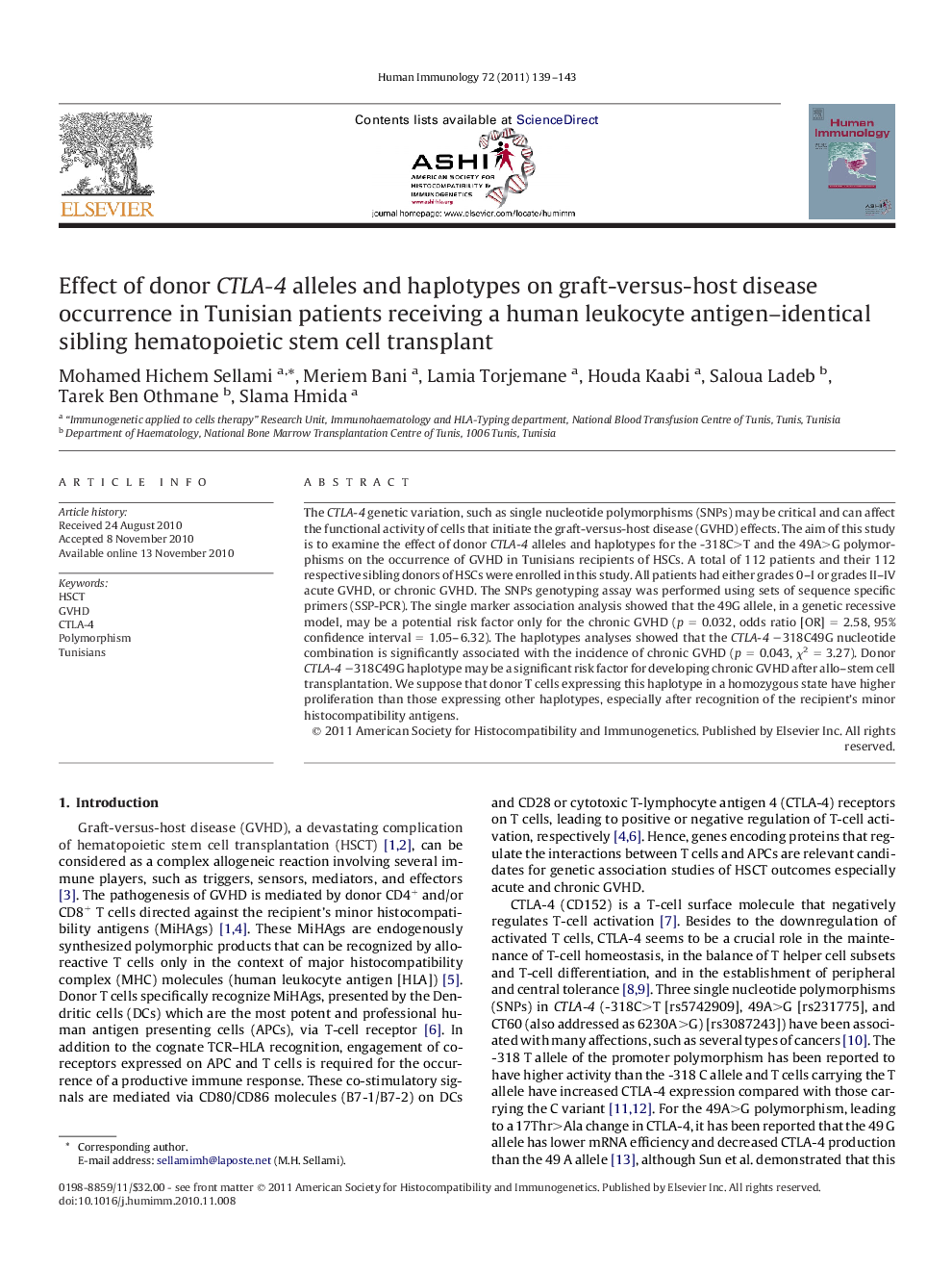| Article ID | Journal | Published Year | Pages | File Type |
|---|---|---|---|---|
| 3351769 | Human Immunology | 2011 | 5 Pages |
The CTLA-4 genetic variation, such as single nucleotide polymorphisms (SNPs) may be critical and can affect the functional activity of cells that initiate the graft-versus-host disease (GVHD) effects. The aim of this study is to examine the effect of donor CTLA-4 alleles and haplotypes for the -318C>T and the 49A>G polymorphisms on the occurrence of GVHD in Tunisians recipients of HSCs. A total of 112 patients and their 112 respective sibling donors of HSCs were enrolled in this study. All patients had either grades 0–I or grades II–IV acute GVHD, or chronic GVHD. The SNPs genotyping assay was performed using sets of sequence specific primers (SSP-PCR). The single marker association analysis showed that the 49G allele, in a genetic recessive model, may be a potential risk factor only for the chronic GVHD (p = 0.032, odds ratio [OR] = 2.58, 95% confidence interval = 1.05–6.32). The haplotypes analyses showed that the CTLA-4 −318C49G nucleotide combination is significantly associated with the incidence of chronic GVHD (p = 0.043, χ2 = 3.27). Donor CTLA-4 −318C49G haplotype may be a significant risk factor for developing chronic GVHD after allo–stem cell transplantation. We suppose that donor T cells expressing this haplotype in a homozygous state have higher proliferation than those expressing other haplotypes, especially after recognition of the recipient's minor histocompatibility antigens.
